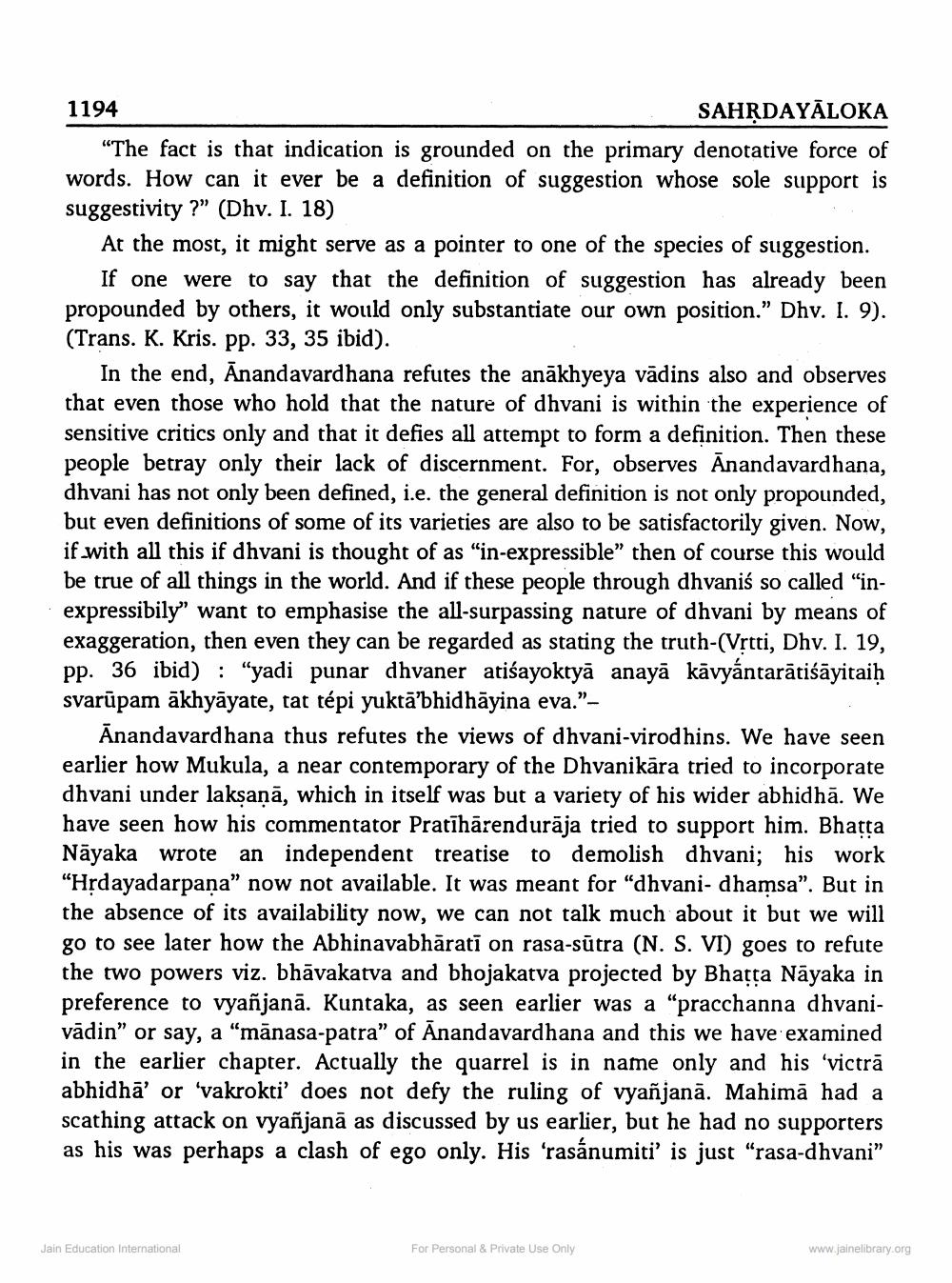________________
1194
SAHRDAYĀLOKA "The fact is that indication is grounded on the primary denotative force of words. How can it ever be a definition of suggestion whose sole support is suggestivity ?" (Dhv. I. 18)
At the most, it might serve as a pointer to one of the species of suggestion.
If one were to say that the definition of suggestion has already been propounded by others, it would only substantiate our own position.” Dhv. I. 9). (Trans. K. Kris. pp. 33, 35 ibid).
In the end, Anandavardhana refutes the anākhyeya vādins also and observes that even those who hold that the nature of dhvani is within the experience of sensitive critics only and that it defies all attempt to form a definition. Then these people betray only their lack of discernment. For, observes Anandavardhana, dhvani has not only been defined, i.e. the general definition is not only propounded, but even definitions of some of its varieties are also to be satisfactorily given. Now, if with all this if dhvani is thought of as “in-expressible" then of course this would be true of all things in the world. And if these people through dhvaniś so called "inexpressibily” want to emphasise the all-surpassing nature of dhvani by means of exaggeration, then even they can be regarded as stating the truth-(Vrtti, Dhv. I. 19, pp. 36 ibid): “yadi punar dhvaner atiśayoktyā anayā kāvyántarātiśāyitaiḥ svarūpam ākhyāyate, tat tépi yuktā'bhidhāyina eva.”
Anandavardhana thus refutes the views of dhvani-virodhins. We have seen earlier how Mukula, a near contemporary of the Dhvanikāra tried to incorporate dhvani under laksanā, which in itself was but a variety of his wider abhidhā. We have seen how his commentator Pratīhārendurāja tried to support him. Bhatta Nāyaka wrote an independent treatise to demolish dhvani; his work “HỊdayadarpaņa” now not available. It was meant for “dhvani- dhamsa”. But in the absence of its availability now, we can not talk much about it but we will go to see later how the Abhinavabhārati on rasa-sūtra (N. S. VI) goes to refute the two powers viz. bhāvakatva and bhojakatva projected by Bhatta Nayaka in preference to vyañjanā. Kuntaka, as seen earlier was a "pracchanna dhvanivādin" or say, a “mānasa-patra" of Anandavardhana and this we have examined in the earlier chapter. Actually the quarrel is in name only and his 'victrā abhidhā' or 'vakrokti' does not defy the ruling of vyañjanā. Mahimā had a scathing attack on vyañjanā as discussed by us earlier, but he had no supporters as his was perhaps a clash of ego only. His 'rasánumiti' is just “rasa-dhvani”
Jain Education International
For Personal & Private Use Only
www.jainelibrary.org




